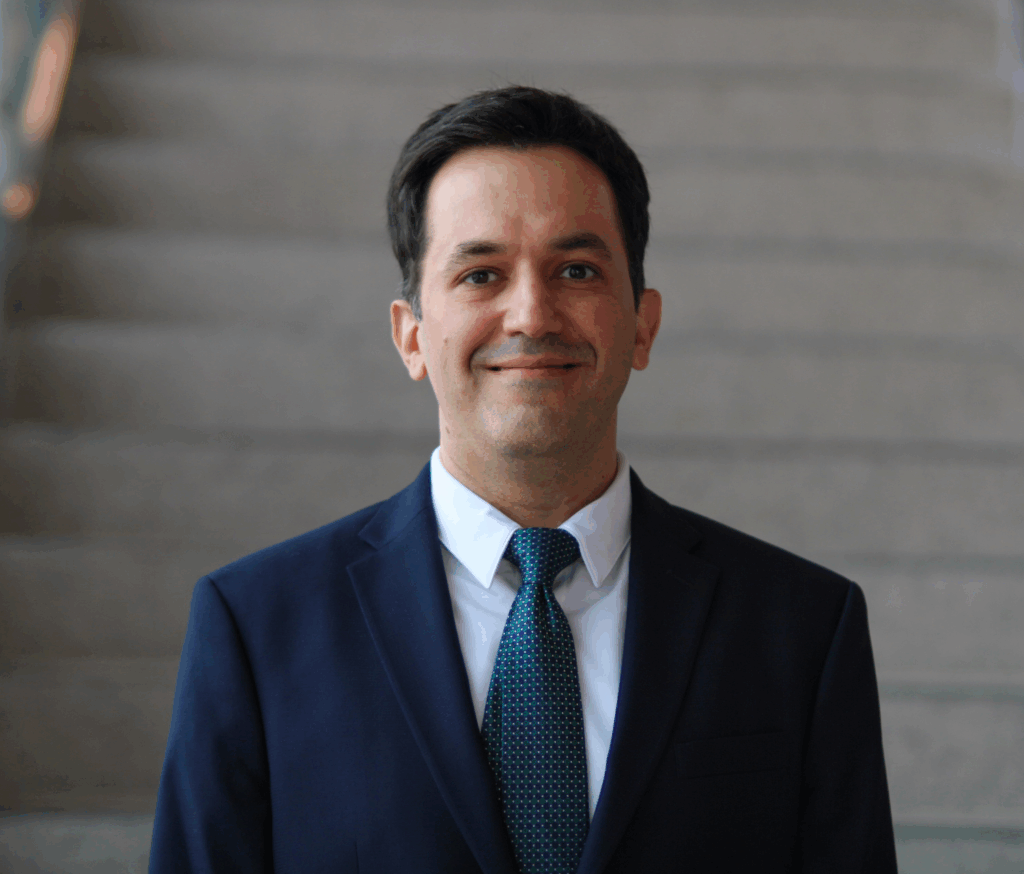A new ocular oncology specialist has joined the Department of Ophthalmology. Dr. Farzad Jamshidi, MD, PhD, Assistant Professor of Ophthalmology, came from the University of Iowa. He was drawn to Pittsburgh because during the job interviews and talks, he was so impressed by the organization of the Department and the amazing promise of the new Vision Institute. He had also heard of the “incredible leadership and vision of Dr. Sahel.”
Dr. Jamshidi will be the first ocular oncologist affiliated with the UPMC Vision Institute and the Retina Division to focus on posterior segment tumors (the most common of primary ocular malignancies). While there are other tumors of the orbit and eye that ocular oncologist experts have the skill sets to take care of, like conjunctival lesions that are commonly managed by cornea specialists and eyelid/orbital tumors by oculoplastics, the bulk of ocular oncology involves the posterior segment. As someone who is also trained in the retina, Dr. Jamshidi has the advantage of drawing from his retina training to manage cancers such as uveal melanomas, vitreoretinal lymphomas, and vascular tumors like retinal hemangioblastomas and choroidal hemangiomas, among others.
As a vitreoretinal surgeon, Dr. Jamshidi also sees the breadth of retinal problems from retinal detachments to macular degeneration, diabetes, and vascular occlusions among the myriads of retinal diseases.
When it comes to research, Dr. Jamshidi and Dr. Ethan Rossi, PhD, and the imaging research group are trying to see if they can characterize the vascularity of choroidal nevi (precursor lesions to melanomas) and choroidal melanomas using various imaging modalities. “This feature, which is thought to indicate malignant transformation, is currently lacking objective measurements,” Dr. Jamshidi said. “If we establish such a measure, it would have an immense impact on detecting these cancers early.”
